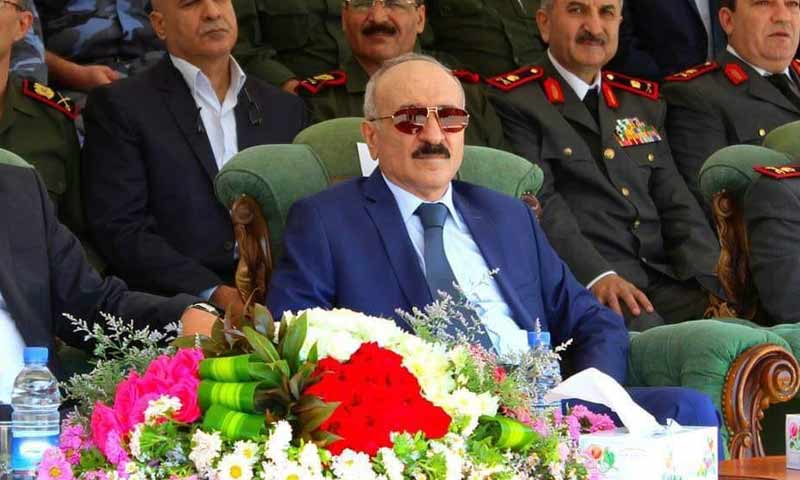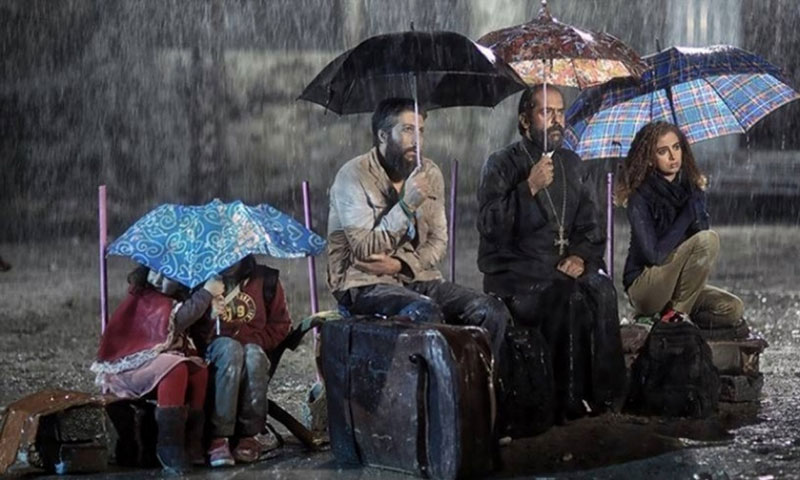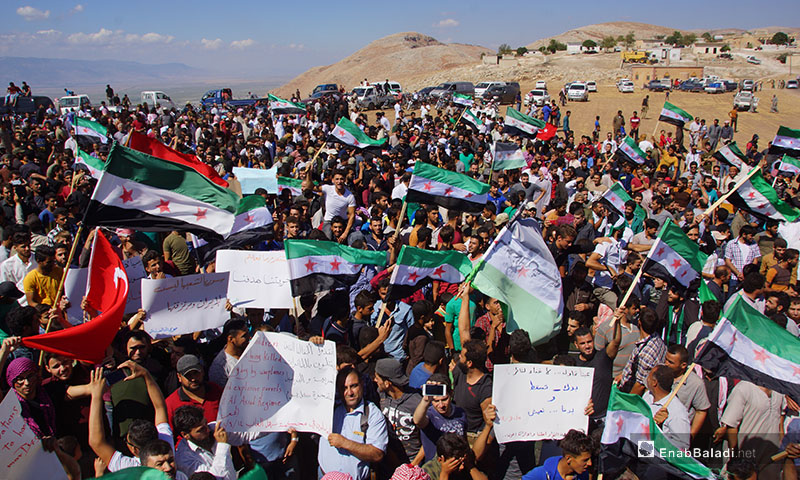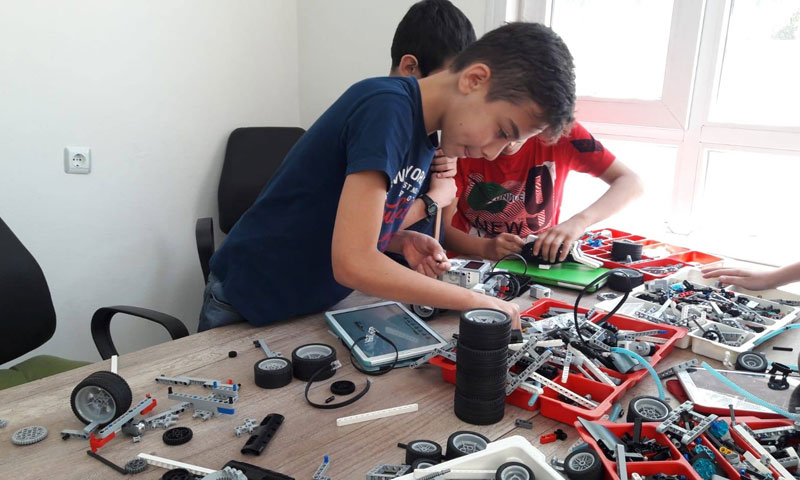Contempt of Damascene people increases the suffering of displaced people in Damascus streets
Enab Baladi Issue # 90 – Sun, Nov. 10, 2013
Recently sitting on the roads of Damascus, individually or even as a family, is an increasing phenomena until the roads of Damascus and its gardens become a refuge for a large number of displaced people from different affected areas.
Asma’, the nine years old girl, sits at al-Thawra bridge in al-Bahsa area to sell biscuits and sweet peanuts, she holds in her hand a book filled with unintelligible scribbles. I asked her about her name, age, home, and why she is not at school. She replied “our house in Aleppo was shelled and after that we moved to Barzeh, Damascus. After a while, we could not pay the bills and we were planning to beg the landlord to keep us in our rented house for a little while but then the house was shelled. My father was killed and my brother was injured. We do not have clothes, money, or even food and I did not register in school”.
At the same time, Um Mohammed and her family did not find a place to protect themselves; therefore, al-Marjah park was their shelter. The dirt is their sleeping mattress and the grass is their cover. Um Mohammed’s sons, whose ages do not exceed five years, spend their days playing and foraging park’s visitors, while their mother spends her day asking and begging people to feed her family.
In Halbouni, a neighbourhood in Damascus, Um Khalil sits with her three daughters selling vegetables and fruits on a mobile push cart. They put what’s left from their torn clothes inside the cart. At the end of each day, they park the cart and they spend their night in the local mosque.
Meanwhile, Um Khaled takes the university tunnel, near the President bridge, a shelter for her and her injured son Khaled. The eyes of the passers-by and their pennies heal Um Khaled’s pain and the permanent disability of her son. She wipes people’s shoes and she prays for them that God reliefs them in their every step so they do not feel the bitterness of her life.
In the colleges’ street in Barameka, children spend their time barefoot and almost naked telling stories about their suffering. Some people listen to them and give them money or buy from them whatever they are selling. Other people hit these children arguing that they are laboured in favour of agendas that make use of these children to take their money by the end of each day. Such people think that if they help these children they will be, in their turn, supporting these agendas. However, some other people cynically argue that the parents of these children asked for freedom so, let them with their parents bear their fates.
Additionally, municipalities issued laws that restrain the phenomenon of begging. These laws recognised, in the five-year state’s budget, the establishment of associations and bodies to help dispalced people and ensure their lives’ needs. These projects remain on paper and the money goes into the accounts of project’s operators in Arab and foreign banks.
On the other side, a young man flirts with a child who lays down on the sidewalk telling him “dear, your mother will tell you off because you are playing with dirt and you are not doing a good job in begging”. Whereas, a lady in her forties stands next to one of the parks that turned to be a refuge for them telling her son “darling see what happened to those who disturbed their parents and who did not follow their parents’ rules… these people do not like the president Bashar, therefore, God punished them and put them in such parks and streets”. She walks with her son and they greet soldiers in a regime’s checkpoint. She kisses a picture of President Bashar al-Assad telling one of the soldiers “they should thank the president because he allows them to sleep in the park”, the soldier replies laughing “of course my dear, these people were kicked off by the armed militia terrorist gangs and we allowed them to stay here to protect them”.
Translated by: Ruba Al Jarf
if you think the article contain wrong information or you have additional details Send Correction
-
Follow us :
Most viewed
- Israel threatens Damascus via Jaramana
- Negotiations between SDF and Damascus: Agreement on generalities, disagreement on details
- Why Damascus remains silent about Netanyahu's threats?
- Syria awaits exceptional season in tourism sector
- Suspension of EU sanctions: Limited impact fails to meet recovery needs in Syria

















 A
A
A
A
A
A







 More Translated Articles
More Translated Articles